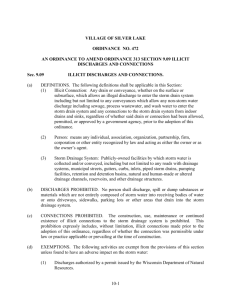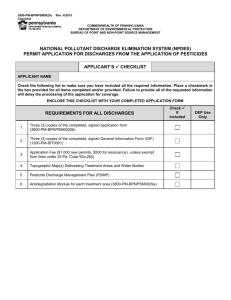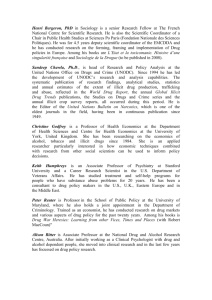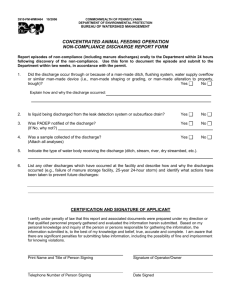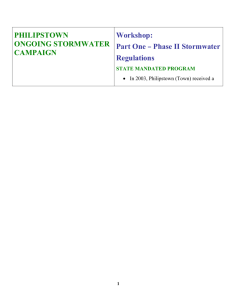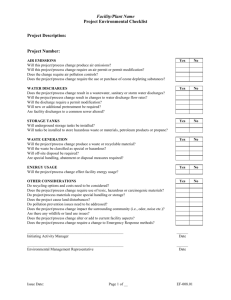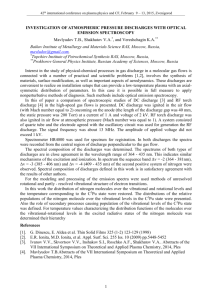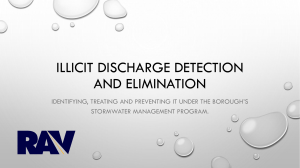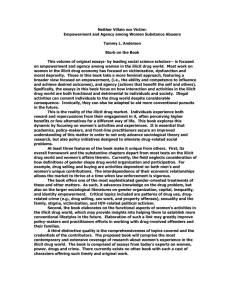Procedure Number: 400.22 Subject:
advertisement
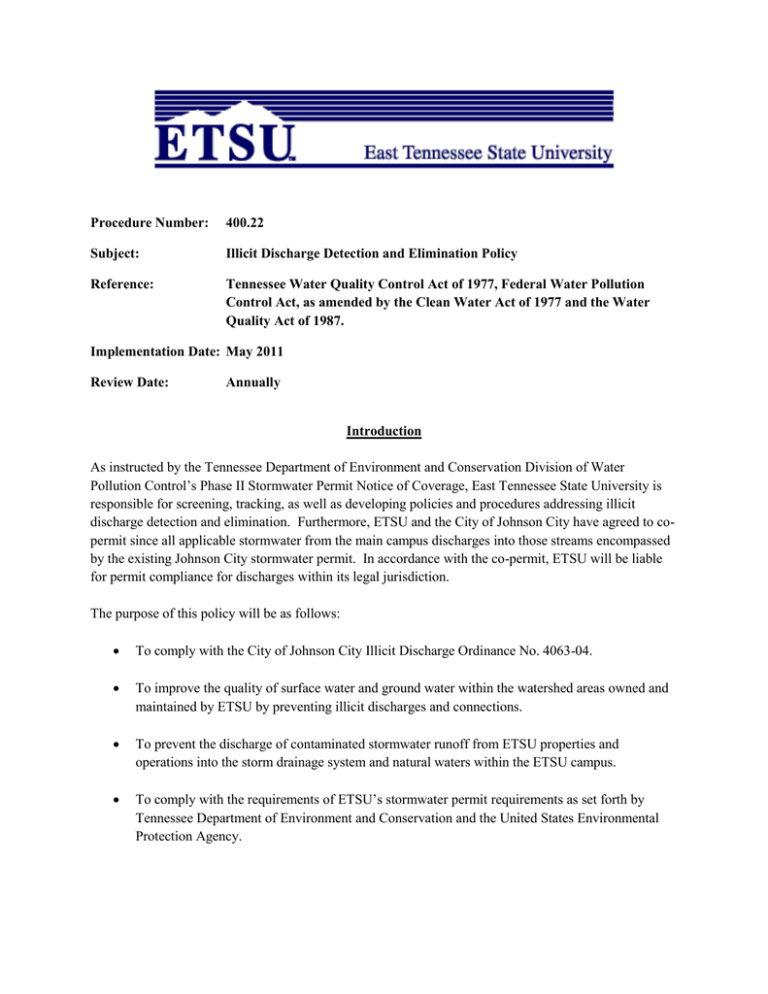
Procedure Number: 400.22 Subject: Illicit Discharge Detection and Elimination Policy Reference: Tennessee Water Quality Control Act of 1977, Federal Water Pollution Control Act, as amended by the Clean Water Act of 1977 and the Water Quality Act of 1987. Implementation Date: May 2011 Review Date: Annually Introduction As instructed by the Tennessee Department of Environment and Conservation Division of Water Pollution Control’s Phase II Stormwater Permit Notice of Coverage, East Tennessee State University is responsible for screening, tracking, as well as developing policies and procedures addressing illicit discharge detection and elimination. Furthermore, ETSU and the City of Johnson City have agreed to copermit since all applicable stormwater from the main campus discharges into those streams encompassed by the existing Johnson City stormwater permit. In accordance with the co-permit, ETSU will be liable for permit compliance for discharges within its legal jurisdiction. The purpose of this policy will be as follows: To comply with the City of Johnson City Illicit Discharge Ordinance No. 4063-04. To improve the quality of surface water and ground water within the watershed areas owned and maintained by ETSU by preventing illicit discharges and connections. To prevent the discharge of contaminated stormwater runoff from ETSU properties and operations into the storm drainage system and natural waters within the ETSU campus. To comply with the requirements of ETSU’s stormwater permit requirements as set forth by Tennessee Department of Environment and Conservation and the United States Environmental Protection Agency. Definitions An illicit discharge is the unauthorized discharge of pollutants or non-stormwater materials to the storm drainage system via overland or direct dumping of materials into a catch basin or inlet. Illicit discharges are generally any discharge into a storm drain system that is not composed entirely of stormwater. Illicit discharges are a problem because unlike wastewater which flows to a wastewater treatment plant, stormwater generally flows to waterways without any additional treatment. Illicit discharges often include pathogens, nutrients, surfactants and various toxic pollutants that can negatively impact receiving waters. Examples of illicit discharges are: Illegal connections to storm drainage system Overland drainage from car washing Cleaning paint brushes in or around a catch basin An illicit connection is the discharge of pollutants or non-stormwater materials into the storm drainage system via a pipe or other direct connection. Sources of illicit connections may include: Sanitary sewer taps Wash water from laundry facilities Wash water from sinks Signs of Illicit Discharges Water flowing during dry weather Oil and grease sheen Foaming discharges Staining on pipe inner walls or inside drainage ditches Heavy slime growth on water surfaces Heavy sediment build-up Unusual odors Distressed vegetation Unknown pipes that discharge into storm water No University employee, student, visitor, contractor, department, or unit shall cause or allow discharges into the ETSU storm drainage system which are not composed entirely of stormwater, except for the allowed discharges listed in Illicit Discharge Ordinance No. 4063-04. Prohibited discharges include but are not limited to: oil, anti-freeze, chemicals, wash water, paint, animal waste and garbage. Such illicit discharges harm the quality of our waters by killing fish and aquatic life and by making waters unsafe for drinking, swimming or recreation. ETSU is required to identify and eliminate any illicit discharges discovered. University faculty, staff and students can help by being observant and by reporting any suspected illicit discharge immediately. Allowed Discharges The following discharges to the storm drainage system are allowed: A. Discharges that are specifically permitted under a State or Federal Stormwater program. B. Uncontaminated discharges from the following sources are permitted: Water line flushing and blow-offs Landscape irrigation or lawn watering with potable water or water from a natural source Rising ground water Diverted stream flows permitted by the State of Tennessee Pumped groundwater Foundation or footing drains Water discharged from crawl space pumps Air conditioning condensate Springs Individual, residential washing of vehicles Swimming pools (if de-chlorinated) Street wash waters resulting from normal street cleaning and deicing operations Discharges resulting from fire fighting activities Dye testing permitted by the City of Johnson City How to Report an Illicit Discharge If you suspect an illicit discharge or observe improper disposal practices, report the incident to the ETSU Environmental Health and Safety Office at 423-439-6028. Include details such as date and time, location of the incident and a description of the discharge. Important Links Illicit Discharge Ordinance No. 4063-04 EPA Illicit Discharge Detection and Elimination Home Page
